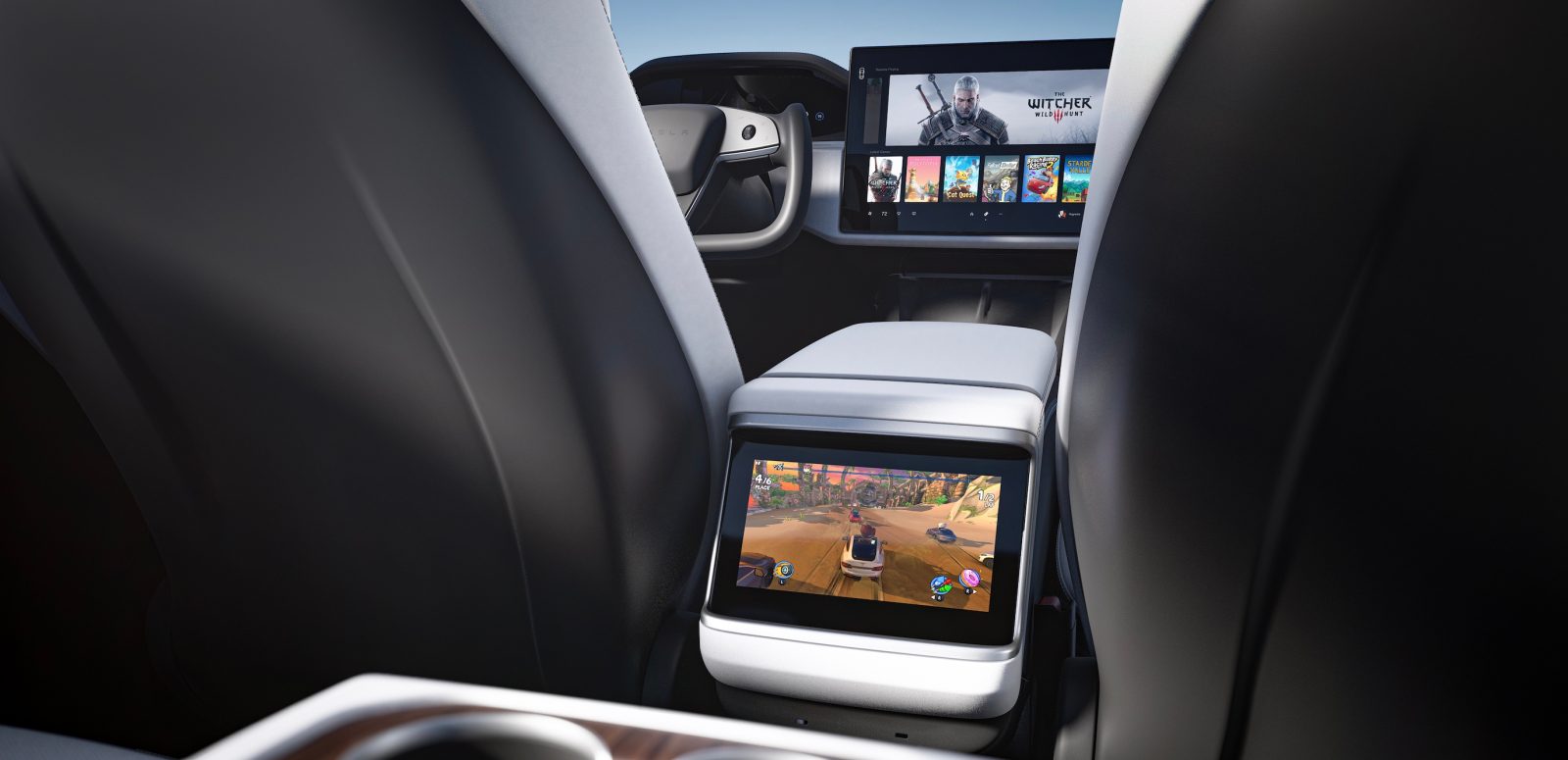
Tesla has started to release a new software update that introduces a simpler way to activate Autopilot and/or Full Self-Driving Beta and also enables separate backseat audio via Bluetooth headphones.
The new 2023.38.8 software update is a small one, but it does include two significant changes for Autopilot and FSD Beta users, and owners of Tesla vehicles with a backseat screen.
First, Tesla has added a new way to activate Autopilot/FSD Beta.
The automaker wrote in the release notes:
Added option to activate Autopilot with a single stalk depression, instead of two, to help simplify activation and disengagement.
It makes Autopilot and FSD Beta a bit easier to activate as Tesla is aiming for self-driving to eventually become an integral part of the ownership experience.
Furthermore, the update also introduces a better way to separate the audio from the front seats and the back seats in Tesla vehicles with a rear screen.
With 2023.38.8, Tesla enables people in the backseat to connect wireless Bluetooth headphones that will receive audio from the rear screen while the audio coming out of the front screen will stay separate.
Tesla wrote in the release notes:
Passengers in the back seat can listen on wireless Bluetooth headphones when watching the Theater app on the rear touchscreen. The rest of the vehicle can continue to listen to other audio from the front.
It means that a driver could listen to something playing in the speakers in the front while kids in the back could watch a show on the rear screen with their headphones.
Tesla explains how the new feature works:
Pair your headphones at App Launcher > Rear Display > Settings > Add New Headphones. To listen, turn on the headphones (up to two), open a Theater app on the rear screen, and hit play.
The automaker has stated to push the update this week, but it can take a while before it propagates to all vehicles.
FTC: We use income earning auto affiliate links. More.
